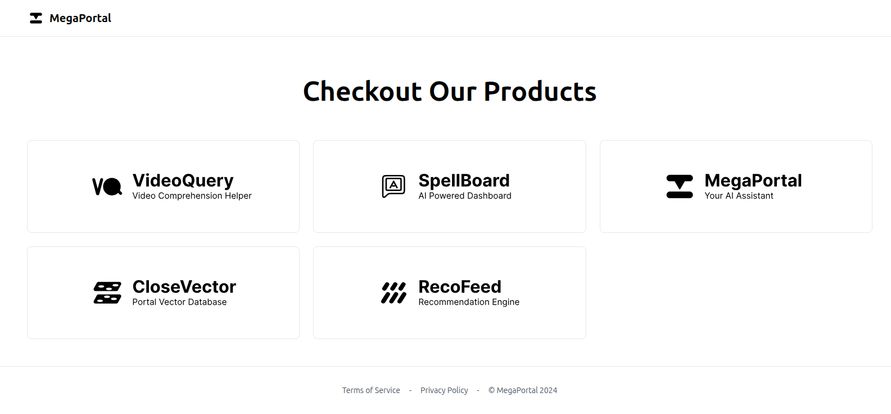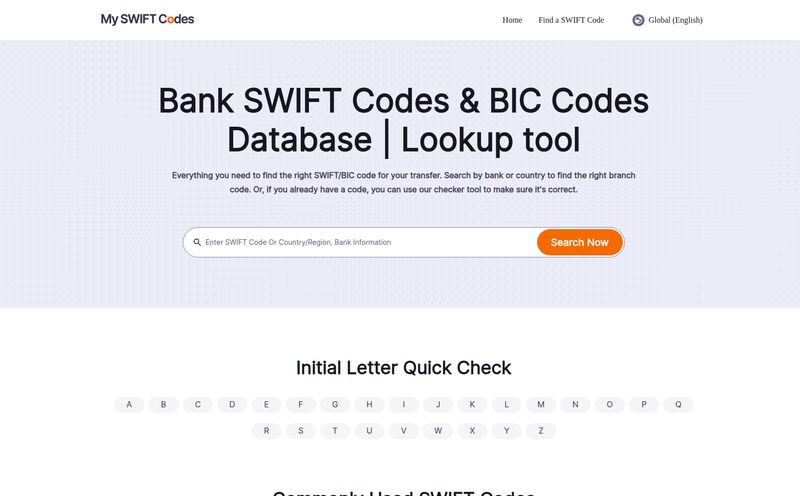Every once in a while, a new tool pops up on my radar that’s… intriguing. Not because it’s backed by a massive marketing budget or a flashy launch event at some tech conference in Austin, but because of its quiet confidence and the specific problem it’s trying to solve. Recently, that tool for me has been MegaPortal. And I have to admit, it’s a bit of a puzzle, but one I'm genuinely excited to try and piece together.
We’re in the middle of a huge debate in the AI world, aren't we? It’s the classic showdown: Cloud AI vs. On-Device AI. Do you send your data off to a powerful, centralized server for processing, or do you keep it all local on your phone or laptop? Both have their place, but there's a growing movement—a real groundswell—for more on-device processing. It’s faster, it works offline, and frankly, it just feels more private. And that seems to be exactly where MegaPortal is planting its flag.
So, What Exactly is MegaPortal?
On the surface, the pitch is straightforward: Bring your trained models to Apple devices and customize workflows. Simple, right? But the implications are pretty big. Think of it like this: you're a master chef who has perfected a secret recipe (your trained AI model). Getting that recipe cooked perfectly in millions of different home kitchens (i.e., people's iPhones) is a logistical nightmare. MegaPortal presents itself as the ultimate meal-kit delivery service for your AI. It provides the specialized box and instructions to get your model running natively on Apple hardware, from iPhones to Macs.
But it's not just one tool. When I first landed on their page, I saw a whole family of products. It seems MegaPortal is the name of the mothership and one of the specific offerings, “Your AI Assistant.” Alongside it, you have things like:
- VideoQuery: A Video Comprehension Helper
- SpellBoard: An AI Powered Dashboard
- CloseVector: A Portal Vector Database
- RecoFeed: A Recommendation Engine
This suggests a much broader vision. They’re not just building a deployment tool; they’re building an entire ecosystem for on-device intelligence. How does CloseVector, their vector database, interact with a model you deploy via MegaPortal? Does RecoFeed use on-device data to generate recommendations without phoning home? I have so many questions. Its a bit of a black box, but a fascinating one.

Visit MegaPortal
Why On-Device AI is Such a Big Deal
Let's get into the weeds a bit, because this is the core of MegaPortal's appeal. For years, the default was to lean on the cloud. And for good reason! The servers are powerful, and you can update models instantly. But the downsides are becoming more and more apparent.
First, latency. Sending a request to a server, waiting for it to process, and getting the result back takes time. It might only be a second or two, but in an app that’s supposed to feel snappy and responsive, that’s an eternity. By running the model directly on the device—powered by Apple's impressive Neural Engine—the results can be virtually instantaneous.
Then there’s the big one: privacy. I don't know about you, but the idea of my personal data, photos, or private notes being uploaded to a third-party server just to run a cool AI feature gives me pause. Local processing means your data stays on your device. Period. It's a huge selling point in an era of constant data breaches and growing privacy concerns. MegaPortal is tapping directly into this sentiment.
Customization is King
The other phrase that jumps out from their materials is "customize workflows." This is music to the ears of any developer or MLOps engineer. It’s one thing to use a generic, off-the-shelf API. It’s another thing entirely to have granular control over how your model integrates into your application. This could mean creating complex chains of operations that run on the device, triggering actions based on the model’s output, all without a single call to a remote server. It's about giving power back to the creators, letting them build unique experiences that aren't just cookie-cutter copies of each other.
The Unpolished Edges: A Dose of Reality
Okay, I'm excited about the potential. But as an SEO and a tech analyst, I have to be real. The platform, as it stands today, is a bit of a mystery. When you start clicking around the MegaPortal site, you might notice… well, you might notice some pages aren't quite there yet. I hit a few 404s myself, which tells me this is likely a very new product, maybe even a soft launch.
The information is sparse. What specific model formats are supported? Is it just for Core ML, or can you bring in TensorFlow Lite models? What are the performance benchmarks? These are critical details for any serious developer, and they're currently missing in action. It’s the classic “show, don’t tell” problem; they’re telling us about a great concept, but not showing us the nitty-gritty details.
And then there’s the pricing. Or the lack of it.
What Will MegaPortal Cost?
This is the million-dollar question, isn't it? There's no pricing page. No hint of a subscription tier, a one-time fee, or a usage-based model. This isn’t necessarily a red flag—many early-stage B2B tools prefer to handle pricing through direct sales or demo requests. But it does make it hard to evaluate for smaller teams or indie devs.
My best guess? We might see a tiered system. Maybe a free tier for hobbyists to deploy one or two small models, a pro tier for indie developers, and an enterprise plan for large-scale commercial applications. Or perhaps they’ll charge based on the number of active installs. For now, we can only speculate.
Who Is This Really For?
Based on the clues, I think MegaPortal is aiming for a few specific groups:
- Indie App Developers: Solo devs and small teams who want to build powerful AI features into their iOS or macOS apps without the cost and complexity of maintaining a backend server infrastructure.
- Privacy-Focused Companies: Any business that handles sensitive user data (think healthcare, finance, or personal journaling apps) would see immense value in on-device processing.
- ML Engineers & Data Scientists: The pros who are actually building the models. They need a simple, reliable way to get their creations out of the lab and into the hands of users.
It’s for the builder who wants control, the company that prioritizes privacy, and the user who demands speed. It’s a compelling combination.
Frequently Asked Questions about MegaPortal
- 1. What is the main function of MegaPortal?
- MegaPortal is designed to help developers deploy their custom-trained AI and machine learning models directly onto Apple devices like iPhones, iPads, and Macs. This enables on-device processing for better speed and privacy.
- 2. Is MegaPortal only for Apple devices?
- Based on all the current information, yes. The focus seems to be exclusively on the Apple ecosystem (iOS, macOS, etc.). There's no mention of Android or web support at this time.
- 3. How does on-device AI improve privacy?
- By processing data directly on your device, MegaPortal helps ensure that sensitive information never has to be sent to an external server. Your data stays with you, which is a major benefit over many cloud-based AI services.
- 4. How much does MegaPortal cost?
- As of now, the pricing for MegaPortal is not public. The website does not list any subscription tiers or fees, which suggests they may be in an early launch phase or handle pricing through direct inquiries.
- 5. What are the other products like VideoQuery and RecoFeed?
- These appear to be part of a larger suite of AI tools offered by the same company. While details are limited, their names suggest they handle specific tasks like video analysis (VideoQuery) and building recommendation systems (RecoFeed), likely leveraging the same on-device philosophy.
- 6. Is MegaPortal ready for production use?
- It's a bit ambiguous. The promising concept is there, but the lack of detailed documentation, clear pricing, and some broken links on the website suggest it might be best suited for experimentation or early adopters for now. I'd recommend reaching out to them directly for the latest status.
My Final Thoughts
MegaPortal is a bit of an enigma, wrapped in a really promising idea. I love the focus. I love the commitment to on-device processing and the privacy-first approach. The concept of an entire ecosystem, from a vector database to a recommendation engine, all running locally, is genuinely exciting.
Yes, it's rough around the edges. It needs more documentation, more transparency on pricing, and a bit of a website tidy-up. But you know what? That’s how a lot of great tools start. They focus on the core technology first and figure out the marketing fluff later. I’m not ready to bet the farm on it, but I’ve definitely bookmarked MegaPortal. I'll be watching this space very, very closely. If they can deliver on even half of their implied promise, they could become a very important player for developers in the Apple ecosystem.
Reference and Sources
- The official MegaPortal website (Information is limited and some pages may be under construction).
- Apple's Core ML Documentation - For general knowledge on Apple's on-device machine learning framework.
- WIRED article on Local AI Models - For a broader perspective on the shift towards on-device AI.



